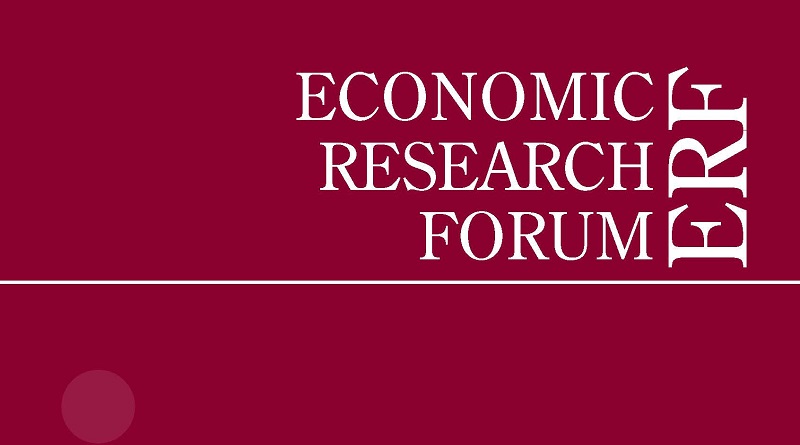Deadline: January 9, 2021
The Economic Research Forum (ERF) is pleased to announce a call for proposals on “Mitigation and Adaptation to Impact of Climate change in MENA countries.” Selected authors will present their papers during a workshop by June 2021.
The MENA countries are particularly vulnerable to climate change disasters and their consequences given the fragility of their ecosystems, their heavy dependence on natural capital and the environment for survival and prosperity, the limited adaptive capacities of these countries to environmental shocks and the limited preparedness to mitigate these shocks.
Research Topics
Proposals are invited on to address topics related to the impact of climate change. Proposals can be cross-country or focused on a single country. Possible research questions may include, but do not have to be confined to:
- The effects of climate change on economic activity, productivity and economic growth.
- What are the defining characteristics, country specific climate challenges and what are the sub-regions that are more vulnerable to climate change in general and particularly to extreme weather events, excessive heat, loss of precipitation, new diseases and viruses, sea-level rise, land erosion and desertification?
- What adaptation measures/ policies are planned, how do they relate to fiscal sustainability, can the region sustain these measures and programs depending on local resources, how much external help will they need?
- What are the specific sectoral climate challenges in the region? How does climate change (gradual and extreme events) affect individual and household income/employment by sector/industry? How will climate change affect the labor demand, labor supply, the number of hours worked- by sector/industry? What are the consequences of migration out of agriculture?
- What are the distributional implications of the climate change shocks?
- Does climate change (gradual and extreme events) have any ramifications on migration and displacement within the region?
- What is the effect of this shock on welfare, consumption and investment?
- What is the cost in terms of forgone growth of this climate change shock?
- What is the effect of international environmental agreements on climate change adaptation/mitigation?
- What is the effect of climate change on trade patterns and countries specialization?
- The heavy dependence of the region on fossil fuels’ revenues and the increased realization of the incompatibility of fossil fuels use with the global carbon budget required for sustainability is increasing the likelihood of fossil fuels becoming stranded assets. How will this impact the economies of the region and their resilience and sustainability programs?
- What regional and international financing arrangements, programs and mechanisms are available for the countries of the region that they could use to shore up their adaptation and mitigation strategies?
- Climate change is likely to affect all of the countries, how will regional cooperation and regional strategies help mitigate and invigorate adaptation programs that no single country would be able to mount on its own?
- What are the most likely climatic developments and emergent risks facing the region, what are their probabilities of occurrence and expected damages under different scenarios of the channel models?
Eligibility
- Researchers should have expertise in the topic being researched.
- At least one of the main researchers should be from the ERF region, whether residing inside or outside the region.
- Researchers from disciplines other than economics may apply.
Selection Criteria
A refereeing committee will evaluate all proposals by the following criteria:
- The value added from the project in terms of contributing to existing knowledge.
- The methodological soundness, be it econometric or in-depth case studies.
- The analytical rigor of the results.
- The policy relevance of the findings.
Guidelines for Submissions
Authors should submit a proposal of a maximum length of five double-spaced pages (excluding appendices, tables, figures, and references). It should be structured to contain three sections in the following format. ERF reserves the right to exclude proposals that are not consistent with these guidelines.
IMPORATANT NOTE: the proposal should NOT include the authors’ names, as it will undergo a blind review process.
- Statement of the research problem: A clear and concise description of the nature and importance of the proposed research; its scope and boundaries; its general context; and objectives with explicit reference to feasibility and policy relevance.
- Value Added: A selective and analytical review of the relevant literature, intending to both demonstrating knowledge of past theoretical and empirical work, as well as identifying the knowledge gap that the proposed research is intended to address.
- Conceptual Framework and Research Methodology: A clear statement of the conceptual framework should be provided elaborating on the set of specific, identifiable and concrete questions for which the proposed research is intended to provide answers. This is to be followed by an elaboration of the research methods to be employed and why they are best suited to answer the research questions. The section should also indicate the nature of the information required and the data collection techniques, whether primary or secondary or a combination of the two. Finally, it should explain how the information will be analyzed and interpreted using quantitative and/or qualitative methods.
- Budget: The budget should be submitted in US dollars, itemized and inclusive of all research and dissemination expenses. Research costs should be defined by deliverables. Other budget items may include travel, if necessary, research assistance, data collection, office supplies and photocopying. The purchase of equipment is not allowed under ERF grant rules. Please note that the maximum budget per paper that ERF can fund is $8,000.
- References: A list should be attached to the proposal specifying the suggested references to be used in writing the proposed paper.
Application
Your submission must include:
- CV of the Author(s)
- Two published or working papers, and
- Proposal as per the above mentioned guidelines.
For more information, visit Economic Research Forum.

